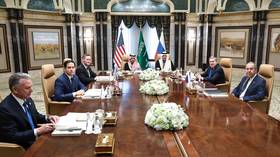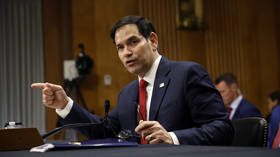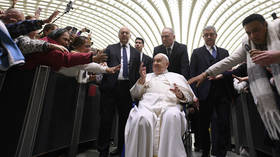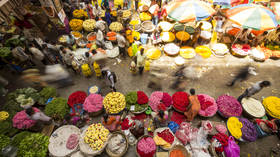‘Cultural cleansing is human tragedy of Middle East’ – UNESCO chief to RT
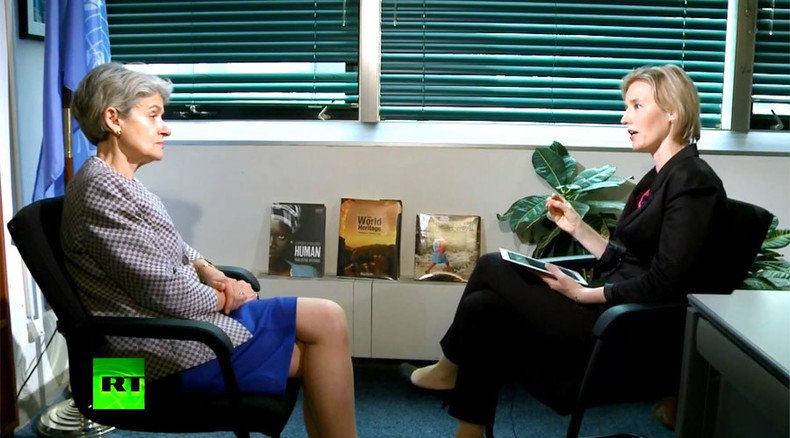
The persecution of people based on their ethnicity and the deprivation of their intangible heritage has become part of the human tragedy in the Middle East, Irina Bokova, Director-General of UNESCO told RT’s Oksana Boyko in ‘Worlds Apart’.
Islamic State militants (IS, formerly ISIS/ISIL) are engaged in the “cultural cleansing” of the Middle East, Bokova said, describing it as a “human tragedy.”
When one “persecutes people on the basis of their ethnicity or religion, destroys their monuments, their temples, deprives them of their intangible heritage, attacks their identities – they stop being humane,” she said.
"To preserve diversity... we have to have to stop this threat to peace and shared heritage."—@IrinaBokova, @UNESCO#HeritageInPeril
— metmuseum (@metmuseum) September 29, 2015She recalled the recent murder of the retired antiquities chief in the ancient city of Palmyra in Syria, Dr Khaled al-Asaad. The 82-years-old custodian was beheaded by the jihadists after being tortured for a month to get information about the city and its treasures in August. According to Bokova, he preserved the secrets of the archaeological site.
Heritage “is part of our history and that is why Dr al-Asaad lost his life – because he deeply believed in something that I think we at UNESCO also believe,” she said calling him a “hero.”
“Heritage and culture will play an enormous and important role for national reconciliation,” she said.
READ MORE: ISIS beheads 82yo chief of antiquities in ancient Palmyra – senior Syrian official
She stressed that there is an urgent need to curb the industrial-scale looting of archaeological sites and trafficking of goods in order to cut the extremists’ financing.
“We should not forget that this is a criminal activity that further finances terrorism, extremist activities, persecution of people. It’s not just looting. It’s not just because we love art that we are doing this. It has a deep meaning for peace and security,” she said.
Bokova reiterated the importance of UN Security Council Resolution 2199 introduced by Russia and adopted in February. The resolution condemned the destruction of cultural heritage and enforced legally-binding measures to counter the illicit trafficking of antiquities and cultural objects from Iraq and Syria.
Buyers of looted artifacts may be charged with aiding #ISIS – FBI
http://t.co/Yll3eddA4rpic.twitter.com/O36FDNOSGG
— RT America (@RT_America) August 28, 2015“For the first time we have convinced the UN Security Council to take up seriously something that we have been advocating since the beginning of the Syrian conflict. I remember during those times I was criticized in the press, [which was] saying that UNESCO is out of touch because people are dying and we are talking about bricks and stones. And we have always been saying that it’s not only about monuments, they are linked to human lives; it is part of the people’s identities.”
She added that the resolution has significantly aided the process of tackling looting and the trafficking of antiquities. As a result of the efforts, a common platform for the exchange of information including 33 countries has been set up, she explained. Several countries, among them the US, France and Germany, have adopted new legislation in order to curb the import of antiquities looted in crisis-stricken areas such as the Middle East, she said.
LISTEN MORE:




